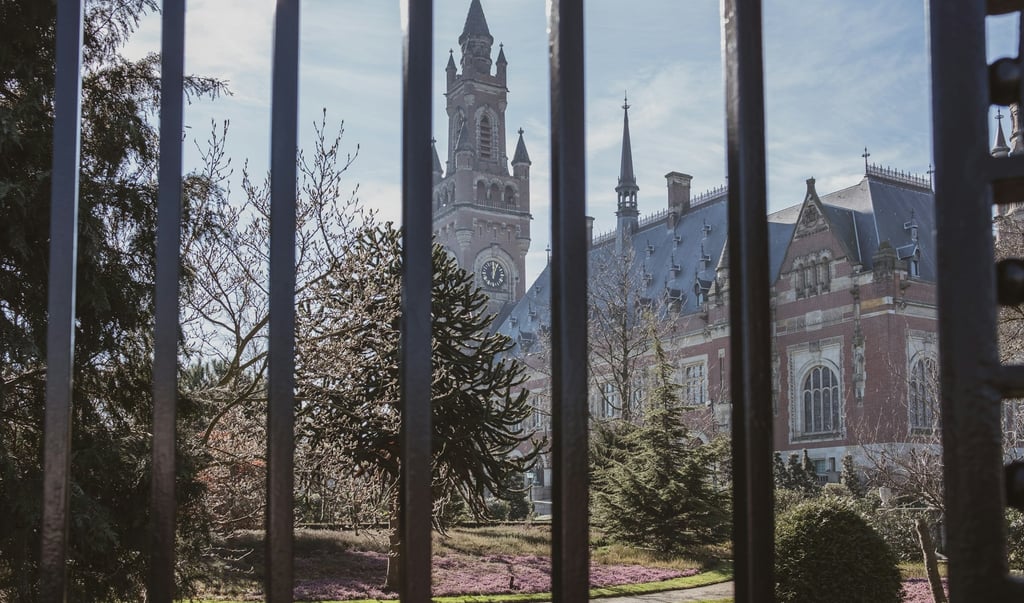The Case for Genocide
A list of the charges made in the South Africa vs Israel case in the ICJ.
3 min read


INTRODUCTION
This is an abridged version of a previous article where I went through the case section by section. Here, I've trimmed the original down further, to summarise the charges levelled against Israel in the ICJ.
Link to the full article
Link to the full case before the ICJ
BACKGROUND - WHAT YOU SHOULD KNOW
In December 2023, legal representatives from South Africa brought a case before the International Criminal Court (ICJ). The case charges Israel with the crime of genocide or more specifically, that Israel has failed to comply with the 1948 Genocide Convention.
The 84-page document is surprisingly readable, and the case is broken down into 151 sections, which each contain a specific claim or assertion together with supporting evidence in the form of links.
I am not a lawyer, but I do have some formal training and qualifications. Nor have I read through the many accompanying documents that are attached to each section as actual evidence. I trust that these have been sufficiently verified by the legal teams involved.
ABOUT THE ICJ - WHAT THEIR ROLE IS
The ICJ serves as the principal judicial arm of the United Nations (UN). The court is headquartered at the Peace Palace in The Hague, Netherlands, and functions under the mandate to resolve legal disputes submitted by states and to provide advisory opinions on legal questions referred to it by authorised international organisations and agencies.
The primary purpose of the ICJ is to promote the rule of law at the international level, and arbitrate disagreements between UN member states.
South Africa's legal argument is the assertion that Israel has committed violations under the 1948 Genocide Convention. To substantiate its claim, South Africa has framed its legal arguments around documented evidence from various credible sources, including reports from the United Nations, international human rights organisations, and independent investigations.
The Peace Palace in the Hague, Netherlands
Pic by Den Harrson


THE CASE
South Africa (SA) begins by condemning the October 7th attack by Hamas, but goes on to declare that such an attack, however serious, cannot justify breaches of the 1948 Genocide Convention. SA then gives a summary of the violations that it is accusing Israel of committing:
"Intentionally directing attacks against the civilian population civilian objects and buildings dedicated to religion, education, art, science, historic monuments, hospitals, and places where the sick and wounded are collected; torture; the starvation of civilians as a method of warfare; and other war crimes and crimes against humanity."
SA goes on to provide context to the current situation, it speaks of a "75 year long apartheid". It points out that it is their (South Africa's) duty to address the actions of Israel under the terms of the Genocide Convention and it is the duty of the ICJ to arbitrate the dispute.
SA then highlights the times that various countries and organisations have legitimately expressed concern, only for Israeli officials to refuted any assertions of war crimes and accuse such statements as "morally repugnant" and "antisemitic".
SA stresses that there is a clear dispute between the two countries, and it is the role of the ICJ to settle the it.
The Genocidal Acts against the Palestinian People
The definition contained in Article II of the Convention describes genocide as: A crime committed with the intent to destroy a national, ethnic, racial or religious group, in whole or in part.
Now we get to the actual accusations of South Africa, which they argue meets the requirements of causing genocide. These are:
The deliberate targeting of people in "safe zones".
The killings of people waving white flags.
Summary executions of boys and men.
Use of indiscriminate bombs on civilian areas.
Reports of use of White Phosphorous munitions.
Causing mental trauma to civilians.
Torture and beatings of civilians detained and later released.
Mass forced displacement.
Targeting of civilians who are attempting to use designated evacuation routes.
Telling civilians to evacuate but not actually telling them where to go.
Deliberate destruction of housing.
Deliberately limiting the supply of humanitarian aid.
Targeting of bakeries and other food production facilities.
Targeting of water production facilities.
Failing to protect hospitals and medical centres.
Targeting of doctors in their family homes.
Deliberately denying civilians access to medical aid causing death.
Destruction of libraries and educational facilities.
Destruction of museums, cultural centres, mosques, churches and artefacts.
Targeting of prominent community figures - teachers, poets, scientists etc
It is important to bear in mind, that the above is not a complete list of the accusations and much additional evidence has been submitted since December 2023.


